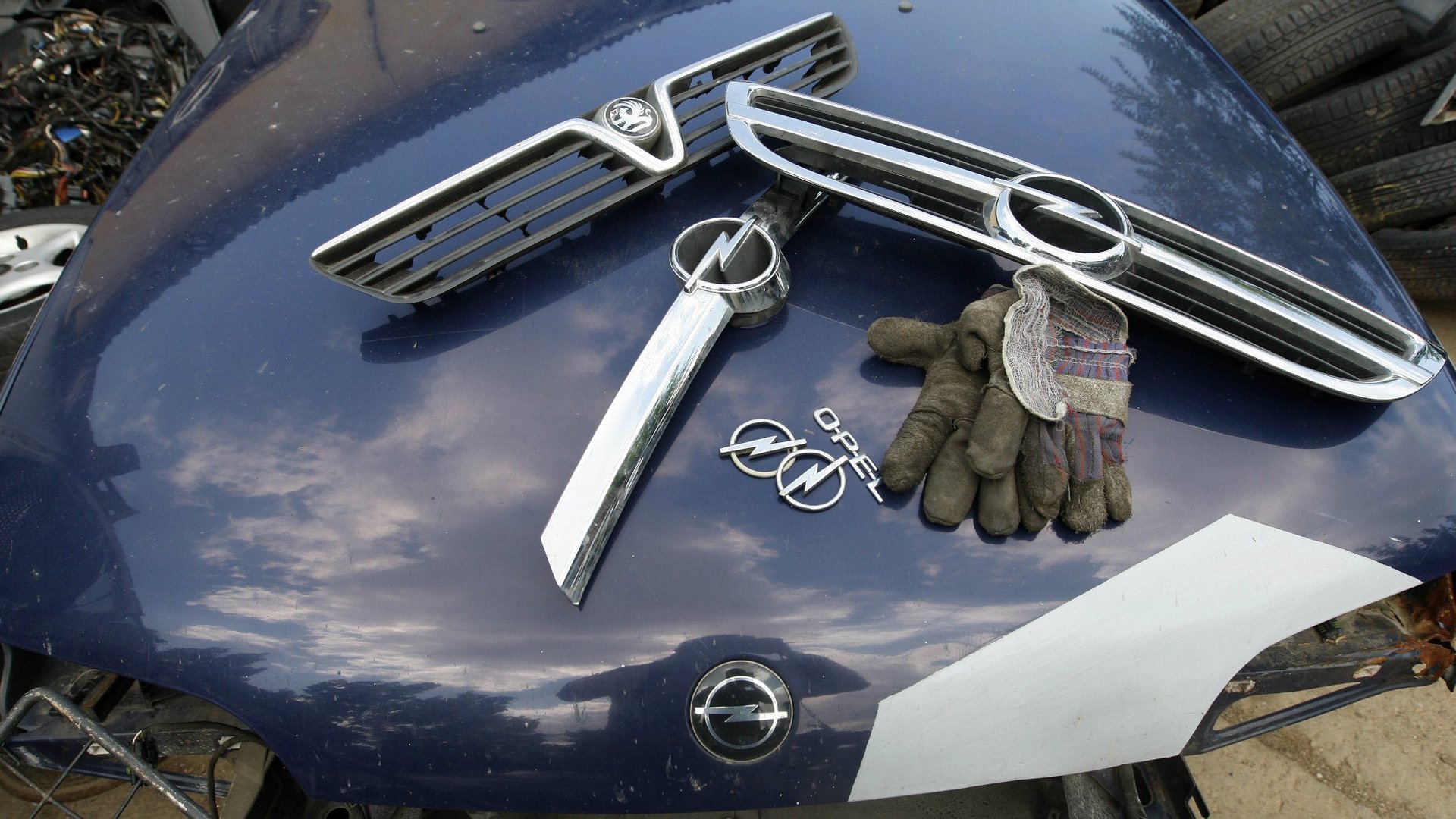After losing $20 billion over 17 dismal years, General Motors may finally quit Europe
The last time General Motors made a profit in Europe was the 20th century.


The last time General Motors made a profit in Europe was the 20th century.
GM’s European division—which produces Opel and Vauxhall-branded cars—has lost money every year since 2000. Over those 17 years, the losses add up to a whopping $20 billion.
Now, rumors have rekindled that GM is considering a sale of its European operations. This time, the suitor is France’s Peugeot, which would bolster its position as Europe’s second-largest carmaker (behind Volkswagen) if it added Germany’s Opel and the UK’s Vauxhall to its stable of brands.
There are daunting political hurdles (paywall) to a deal getting done. Post-Brexit Britain is particularly sensitive to losing factory jobs, and German politicians are nervous about upsetting auto unions in a federal election year. In crisis talks between auto execs and politicians, assurances from Peugeot that costs won’t be cut after a takeover haven’t been too forthcoming.
GM’s long history of false starts on the road to breaking even in Europe isn’t very encouraging in this regard. Below are passages from GM’s annual reports since 2000, promising a turnaround in Europe that always seems to be just around the corner (GME is short for GM Europe).
2000
“The decrease in GME’s 2000 adjusted income from 1999 was due to the weakening of the European industry, a shift in sales mix from larger, more profitable vehicles to the smaller, less profitable entries, a continued increase in competitive pricing pressure, and a decrease in wholesale sales volume which was further impacted by the reduced availability of the new Corsa during the launch period.”
2001
“The increase in GME’s 2001 adjusted loss from 2000 was due to a continued shift in sales mix from larger, more profitable vehicles to smaller, less profitable entries, as well as a decrease in wholesale sales volume and continued competitive pricing pressures.”
2002
“During 2001, GM Europe announced its plan to turn around its business… These initiatives include, among other things, reducing GME’s manufacturing capacity, restructuring the dealer network in Germany, and redefining the way vehicles are marketed. These initiatives resulted in a decrease to GM’s pre-tax earnings.”
2003
“While we made progress in Europe last year, we were slowed by a stagnant economy and increased competition. Our market share increased slightly on the strength of new products, but we fell well short of our goal to break even on the bottom line.”
2004
“GM Europe’s losses grew as competition intensified and pricing deteriorated further. In order to address our high-cost position, we reached an important agreement in December with our European labor unions on a major restructuring plan that will help GME significantly improve our cost-competitiveness.”
2005
“In the tough European market, our turnaround remained on track. GM Europe cut its losses significantly based on good consumer acceptance of our new vehicles and strong progress on our cost restructuring initiatives. We expect continued improvement in 2006.”
2006
“The GME turnaround plan remains on track, and we expect to see more progress in 2007.”
2007
“GME recorded restructuring charges of $437 million in 2006. These charges consisted of separation and contract costs for several restructuring initiatives.”
2008
“The decline of industry vehicle sales reflects the direct effect of the recession in Western Europe and the indirect effect of the tightening of credit markets, volatile oil prices, slowdown of economic growth and declining consumer confidence around the world. In the short-term, we anticipate quarterly industry vehicle sales to remain below levels reported in the prior 24 months.”
2009
“To the extent our liquidity is not available to finance the Opel/Vauxhall operations and Adam Opel fails to secure government-sponsored financing or other financing, the long term viability of the Opel/Vauxhall operations could be negatively affected.”
2010
“In June 2010 the German federal government notified us of its decision not to provide loan guarantees to Opel/Vauxhall. As a result, we have decided to fund the requirements of Opel/Vauxhall internally, including any amounts necessary to fund the $1.4 billion in cash required to complete the European restructuring program.”
2011
“Our business plan contemplates that we restructure our operations in various European countries, and we are actively working to accomplish this.”
2012
“We believe it is likely that adverse economic conditions, and their effect on the European automotive industry will not improve significantly in the short-term and we expect to continue to incur losses in the region as a result.”
2013
“We believe it is likely that adverse economic conditions and their effect on the European automotive industry will not improve significantly in the near-term; however, we expect to break even in GME by mid-decade.”
2014
“The automotive industry conditions in Europe remain challenging due to economic uncertainty resulting from weak gross domestic growth, high unemployment and vehicle production overcapacity… We expect the European automotive industry to continue to moderately improve and we expect to be profitable in GME in 2016.”
2015
“We continue to implement various strategic actions to strengthen our operations and increase our competitiveness… As a result we intend to break even in GME in 2016.”
2016
“Despite the improvements we experienced through most of 2016 we were unable to overcome the impacts of the U.K. referendum vote to leave the European Union… We anticipate the impacts of Brexit to continue through 2017.”